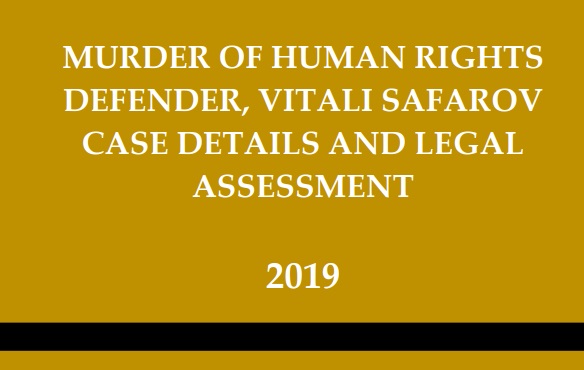Hate motivated crimes are one of the key challenges in the State of Georgia. Recent facts clearly demonstrate the increasing threat of hate motivated crimes in the society. However, the State fails to respond this tendency with adequate preventive mechanisms and reacts only to concrete facts which is often ineffective and incomprehensive.
Astonishing murder of human rights defender Vitali Safarov once again proved the existence of real threat for the society coming from the neo-Nazi/fascist groups. The threat is fostered by the lack of political will of the State to address the problem as well as inactivity of the State to clearly respond to the offensive activities and messages of the ultra right extremist and nationalist groups. In some cases, dissemination of the hate speech by high political officials, politicians and religious figures also create problems as well as clearly discriminative discourse of some media sources.
State does not have systemic policy to prevent discriminative crimes and only tries to react to incidents. Unfortunately, the Government is unable to support and strengthen the ideas supporting equality even with their statements. Weak policy of the state complicates construction of inclusive, equality-based and peace-oriented society . In the view of poor social policy and inevitable rise of the social-economic inequality in the country, we expect further increase of similar crimes that is particularly dangerous because there are no long-term preventive policy to address the problem; furthermore there is no proactive repressive mechanism, that is important to defend and realize the human rights in the society.
The state avoids implementation of its duties and does not react adequately to unlawful and violent activities of similar groups. The aggression and intolerance of these groups mostly target culturally non-dominant minority groups and people with liberal views. The practice of ineffective response policy towards hate motivated crimes threaten the public order, encourage similar groups and supports polarization of the society as well as establishment of xenophobic, racial, homophobic and other hates.
It is essential that the state implemented not only its negative but also positive obligations and realized its role. At the same time, alongside the creation of adequate legal mechanisms and implementation of legal norms, it is necessary to make official statements in support of tolerance and equality, to conduct awareness raising campaigns and apply other mechanisms with which the Government will promote the construction of democratic society and establishment of safe, tolerant political environment.
See full document here




